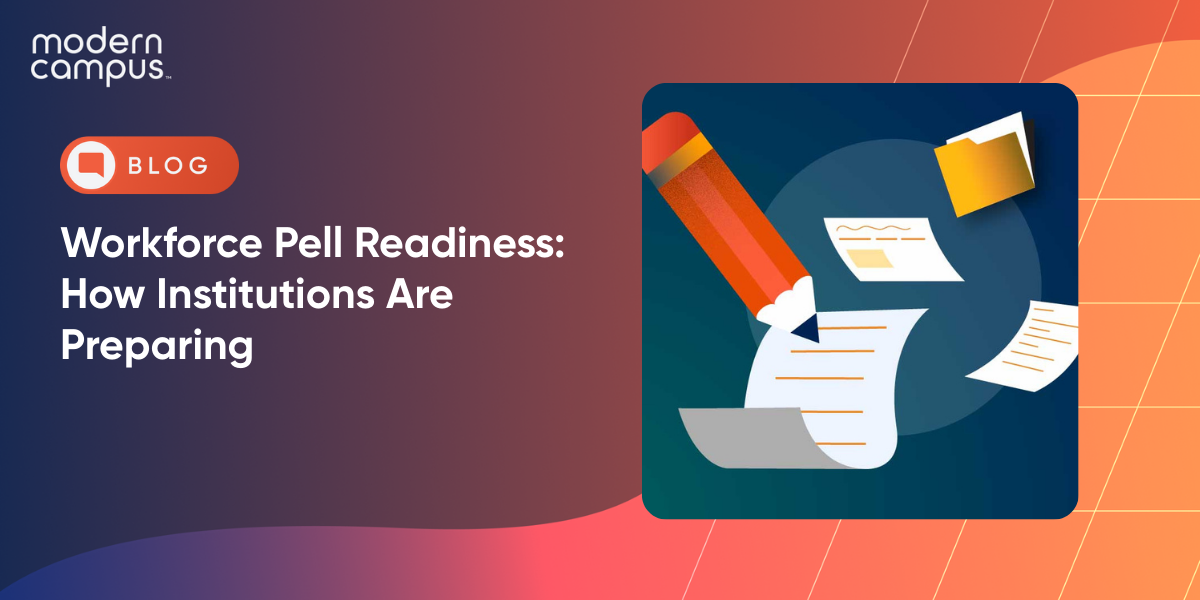Are Your Digital Credentials Forgery-Proof?
There’s little doubt that digital credentials are the future of all credentialing, academic or otherwise.
By most accounts, they make accreditation easier. Not only is access to an earned badge or certification nearly instantaneous upon program or course completion (as credentials can be given out as quickly as your administration system will allow), they’re also significantly easier to circulate. They can be displayed and sent off to social networks or employers in just a click, extending their reach far past that of traditional paper-based credentials.
Digital Credentials are Exploding
Verified digital credentials were on the upswing well before COVID-19 but the pandemic accelerated demand. In 2020, the earning of credentials on Credly increased by 70% over the previous year. First-year student enrollment, on the other hand, dropped by more than 15%. The need for universally accessible qualifications is clearly rising.
Higher education leaders agree, with 9 out of 10 respondents to a recent survey saying microcredentials help keep their institutions competitive.
But the convenience of the digital revolution introduces some new hiccups.
Digital Credentials Require Rigid Security
Credential fraud is one of the biggest concerns facing higher ed and adjacent industries. At a time when nearly any piece of media can be easily manipulated to appear how you want it to, it’s no surprise that many job seekers have leaned on digital forgery to get a leg up on the competition. According to a 2018 study, 68% of applicant resumes were misrepresentative of their skills, with 29% of those involving individuals who presented credentials they hadn’t earned.
Forged Credentials Threaten Academic Integrity
Though recorded instances of forged digital credentials pale in comparison to credentials presented truthfully, the possibility of falsified qualifications keeps many higher ed leaders from embracing them.
Being seen to present easily altered or outright counterfeited academic qualifications threatens an institution’s reputation. Even worse, it can be more harmful to the institution’s standing if the forgery isn’t discovered—as ill-equipped or insufficient workers appear to have been given the institution’s seal of approval.
While the odd worker mocking up a fake business degree may not seem enough to shake academia on its own, forged digital credentials pose a long-term threat to the legitimacy of all academic credentials—and the institutions that do (or in this case, don’t) offer them.
Digital Credentials Can Be Secured
Thankfully, the solution to credential forgery is simple: secure and preserve the content of the documents themselves more tightly.
BCdiploma, a fast-growing provider in the credentialing space and a Modern Campus partner, was built to tackle this very issue. It allows institutions to create well-designed, highly-customizable credential templates in the form of badges or full diplomas that can be securely issued to learners who’ve earned them, allowing every credential to be verified by your institution in just a few clicks.
Enable Secure, Verifiable Credentials with Two Clicks
BCdiploma uses blockchain security to deliver forgery proof credentials that institutions and training organizations can issue instantly. Institutions can integrate customizable digital credential templates in terms of design and content, with the ability to design a degree, a certificate, a transcript or any other attestation.
Each digital credential has a verification button that opens an evidence panel, containing proofs of authenticity for the reader. Alexis Berolatti, Co-founder and COO of BCdiploma, described how the platform secures digital credentials.
“We have a unique technical approach by using the blockchain because we encrypt your certificate's data to make this data totally anonymous in legal respects,” Berolatti said. “We then store this encrypted data on the blockchain. Thanks to this approach, your digital credentials become tamper proof and unforgeable. There are totally impossible to falsify.”
Berolatti said the credentials are also sustainable over time; they’re made to be accessible with no time limit. “We offer the best and easiest user experience both for issuing institutions and credential owners but also for people that will and verify the digital credential.”
With the Destiny One BCdiploma Connector, non-traditional units can deliver verified, forgery-proof digital credentials at the touch of a button.
Deliver Branded, Marketable Credentials
Berolatti said that quickly customizable, elegant credentials can also be a valuable marketing tool for an institution, with the branding and content directing viewers towards the issuing organization.
“The digital credentials you will issue to your students will be shared on social networks,” Berolatti explained. “They will be integrated to the recipients LinkedIn profiles. They become a real communication tool.”
Take Credential Security Seriously
Your students work hard to earn badges and certifications. Authenticity is paramount to students, and it’s crucial that your administration’s digital framework ensures that credentials can be quickly verified as legitimate.
Securing your institution’s digital credentials via blockchain isn’t about stopping a few bad actors from landing a position they aren’t qualified for. It’s about safeguarding the authority of your institution in the eyes of employers and learners.
Learn how to safeguard your credentials with blockchain security.
Last updated: November 8, 2021



